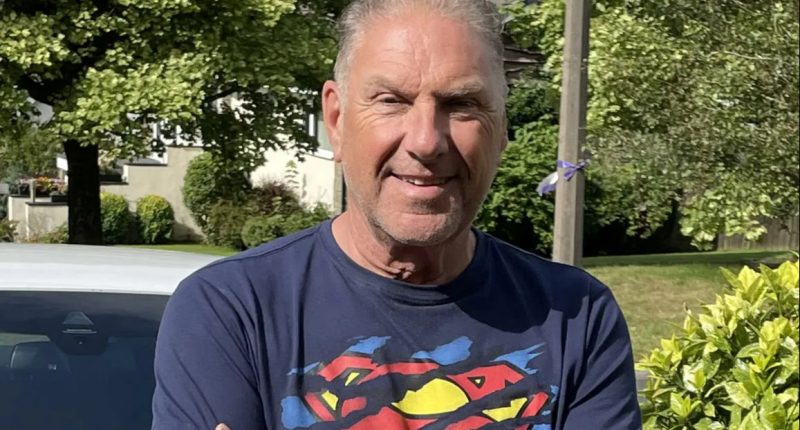A MAN has slashed his bill by nearly £150 just by changing one everyday energy habit.
Graham Felton, 68, has taken part in 20 “switch offs” – earning up to £7 a time for reducing the consumption of energy in his four-bed home.
The “Demand Flexibility Service” was trialled last winter – and last week people were asked to turn the heating down in exchange for money again.
Graham took part in the scheme and earned up to £7 a time for reducing the consumption of energy in his four-bed home for 90 minutes a go.
The last switch-off was on November 29 – the first of another 12 national tests taking place this winter, and it earned Graham another £7.
Six of the 12 “switch-offs” are set to take place in December.
Read more on Money
Retired consultancy business owner Graham said he does it by simply turning his thermostat down in his bungalow at peak hours on specific days – and cooking his dinner a bit earlier.
Married Graham, from Burnley, Lancashire, said: “The bungalow leaked like a sieve when we first moved in 35 years ago.
“It’s about as good as it can get now with all the upgrades.
“We have an electric infrared heating system so whenever there’s an event, we turn the thermostats down and that saves us enough electricity to hit the target.
Most read in Money
Graham also said that he avoids cooking during the “switch-offs” but that is about it.
He added: “It’s a good saving for a very small behaviour change that didn’t inconvenience me at all.”
OVO Energy customer Graham took part in the majority of the 20 trial DFS events through OVO’S Power Move Plus scheme between November 2022 and March 2023.
He has so far earned a total of £96.18 from the DFS events and plans to continue taking part in the remaining events – with 12 due before the end of March.
He said: “It changes the daily routine and it’s not a hard thing to do. It’s just something that’s become habit.”
Mat Moakes, chief commercial officer at OVO, said: “Our customers are collectively saving hundreds of thousands of pounds and cutting carbon by shifting their electricity usage out of peak times.
“To really make a dent in bills, cut carbon and balance the grid, we need to reward long-term behaviour changes.
“Power Move maximises rewards and runs all year round, on top of the DFS scheme, to incentivise people to shift electricity use out of peak energy times.
“Consistent, collective action will make the biggest impact overall.”
How does the scheme work?
The National Grid’s “Demand Flexibility Service” (DFS) is designed to reduce pressure on the energy network and prevent blackouts.
Customers get on average £3 back from National Grid if they reduce their energy usage by a minimum of 30% but others will get even more if they cut back further.
Under the service, households who use less electricity than they normally do during certain allotted hours are paid for the savings.
Any customers who have already signed up to the DFS via their supplier don’t have to do anything except sit tight and wait to be contacted about the event.
The National Grid tells energy suppliers when they can trigger the DFS, and suppliers then contact customers asking them if they want to take part.
Who can take part?
You need to sign up through your energy supplier to take part, they may also contact you asking if you wish to sign up.
Suppliers that are currently signed up to the scheme are as follows:
- Octopus Energy
- British Gas
- EDF
- E.On
- Ovo Energy
- Shell Energy
When you are signed up your supplier will contact you via email or text informing you when you can take part in the service.
Every provider is different and has its own eligibility criteria to take part in the scheme, and how much you can earn will vary.
However, customers could be paid up to £6 per kilowatt (kWh) of energy saved compared to their normal usage over a two-hour time frame, usually between 5pm and 6.30pm.
So if a customer slashed their energy usage by two kilowatt hours, the maximum the customer could earn back is £12.
People with smart meters take part by having their energy monitored every 30 minutes and have to reduce their normal energy consumption by around 30%.
Last winter, the Demand Flexibility Service successfully saved over 3,300MWh across 22 events, enough to power nearly 10 million homes.
31 registered providers participated in the service with 1.6million households and businesses taking part.










